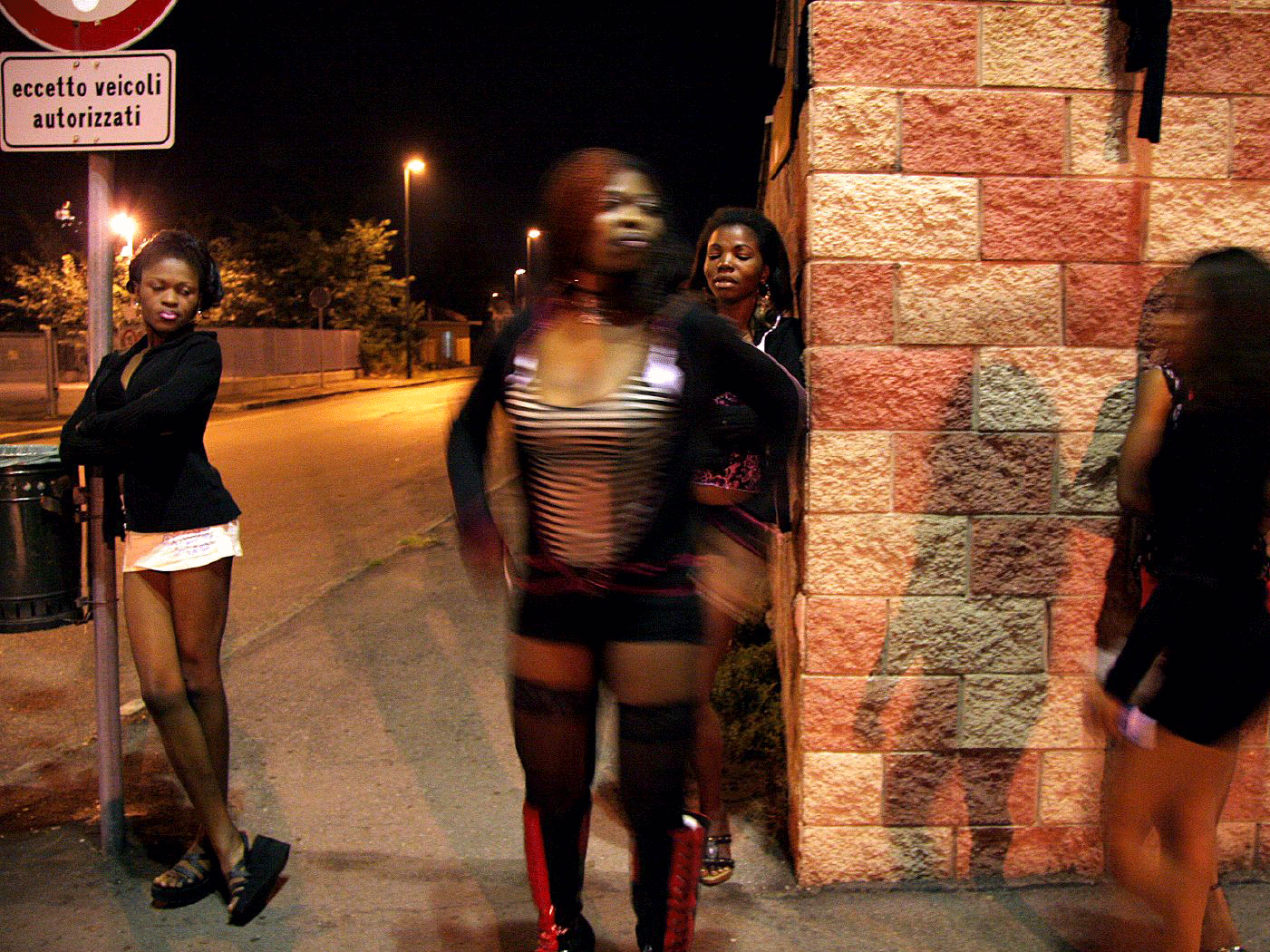Pope Francis makes surprise visit to former trafficked prostitutes in Rome
The women from Europe and Africa have suffered 'serious physical abuse', says the Vatican

The Pope has made a surprise visit to women once forced into sex work, where he blessed them and told them to stay strong.
The 20 women, all of whom had escaped forced prostitution, received Pope Francis during an unannounced visit to their apartment in Rome.
The visit forms part of the pontiff's "Fridays of Mercy" in which he focuses on communities that have undergone suffering.
Seven Nigerian, six Romanian, and four Albanian women told him how they had been trafficked into Italy by pimps who then forced them to have sex with multiple customers a day.
Three others came from Italy, Tunisia and the Ukraine. Some of the women, who were in their late 20s and early 30s, had children on their knees.
The Vatican said they had "suffered serious physical abuse" and now lived under the protection of a Catholic charity which houses them in an apartment in Italy's capital, according to the BBC.
Speaking to the formerly trafficked women at their apartment, Pope Francis urged them to “be strong”.
Trafficking vulnerable women, many of whom are seeking to provide for families back at home, is a major criminal industry in Italy.
In 2015, 5,633 young women arrived in Italy from Nigeria alone – a leap from 1,500 the year previously. The United Nation’s International Organisation or Migration estimates that 80 per cent of these Nigerian women will have been victims of trafficking.
The number of routes that women are trafficked across northern Africa and eastern Europe indicates a network of criminal organisations are involved, migrant rights campaign group Tampep has said.
Since the recession, the women have earned lower rates for traffickers and as such are being made to “work” longer hours to make up the shortfall for the pimps.
Pope Francis gives life advice: in pictures
Show all 10Aiding and abetting prostitution is illegal in Italy, but the exchange of sexual services for money is not. Such a legal framework is common across Europe.
The only countries to have outlawed the actual purchase of sex are Sweden, Norway, Iceland, Northern Ireland and France.
Meanwhile, an interim report from the Commons' Home Affairs Select Committee about sex work in the UK came to the conclusion this year that decriminalisation of prostitution was the best way to protect sex workers.
Controversy erupted in Italy in April last year when certain areas and streets were made “prostitute-free” after the sight of women walking the streets became so common in some districts that communities protested.
Men were set to be fined up to about £380 if they were caught with a sex worker in those areas.
Catholic organisations argued at the time that the plan legitimised the exploitation of women because it did not apply everywhere.
Subscribe to Independent Premium to bookmark this article
Want to bookmark your favourite articles and stories to read or reference later? Start your Independent Premium subscription today.

Join our commenting forum
Join thought-provoking conversations, follow other Independent readers and see their replies